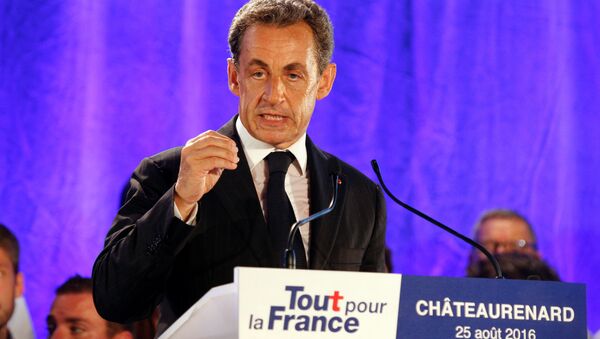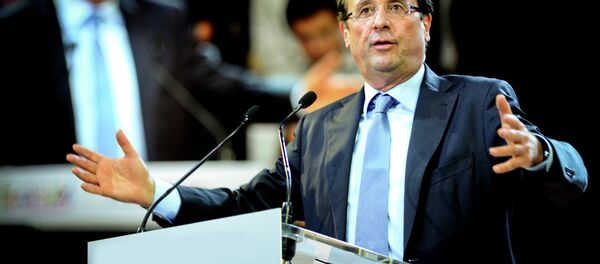After announcing his bid for next year's presidential election this week, Mr. Sarkozy ramped up his immigration rhetoric on Thursday (August 26).
Among his policies are that an immigrant should only have access to benefits after five years in France; that all schoolchildren must speak French first, as "other languages can come after"; and that a youth born in France, but with illegal immigrant parents, should have their citizenship revoked if they get a criminal record before they turn 18.
The former President added:
"My aim is to bring back authority and defend the French Republic."
He has also promised to impose a nationwide ban on burkinis — the full body bathing suits worn by Muslim women — if re-elected to the presidency in 2017.
"Wearing a burkini is a radical, political gesture, a provocation. The women who are choosing to wear it are testing the resilience of the Republic," Mr. Sarkozy said.
That's despite a landmark judgement from France's highest administrative court on Friday, that said the ban, which has been in place in several French coastal towns this summer, "seriously, and clearly illegally, breached the fundamental freedoms to come and go, the freedom of beliefs and individual freedom."
#Sarkozy: "Our identity is under threat when we accept an immigration policy that makes no sense." #Islamophobia
— Heavy Metal Politics (@heavympolitics) 26 August 2016
There is little indication that Mr. Sarkozy is planning to soften his stance in light of the new judgement.
On the contrary, political commentators see his policy proposals has a deliberate attempt to woo right-wing voters who are feeling increasingly disenchanted in socialist France.
Incumbent President François Hollande, has come under mounting pressure over the numerous Islamist attacks that have taken place on French soil, often perpetrated by French nationals, over the last 18 months. He's been accused of failing to implement tough security and intelligence measures, and of mismanaging immigration.
Hollande booed by the people of Nice who are angry that the French Government are not doing enough to stop terrorism.
— AC (@tangerinemann) July 15, 2016
Now his opponents on the right are capitalizing on the persistent fears and paranoia of the French electorate, that another terrorist attack could be around the corner.
None more so than the National Front, a far-right party led by Marine Le Pen, who are anti-immigrant, and aggressively nationalistic. They have seen their support swell as fears grow of immigrants and of Islamist extremism.
Now, with his series of hardline immigration policies, Nicolas Sarkozy is reaching out to that demographic of voters: those who don't think that multiculturalism has come with enough emphasis on immigrants to integrate into French society.
Mr. Sarkozy summed up his pitch saying:
"People cannot say 'I want to be French, but in my own way.' "
Undeterred, Mr. Sarkozy has vowed that he would renegotiate EU legislation to make it harder for immigrants to move to France. He's calling for family reunification for migrants to be suspended until the EU agrees on a new immigration policy for all member states.
"If I am named president, France will renegotiate Article 8 of the European Court of Human Rights, which deals with family reunification.
"We need to use our common sense and interpret the rules in light of the current migrant crisis.
"Family reunification was established back in 1976, at a time when there was little unemployment and people had no difficulty integrating into society. Things have changed. France must suspend this right until the EU comes up with a solid immigration policy for all member states, and does more to protect its border."
Despite his entreaty to French voters, Mr. Sarkozy faces an uphill battle to win the nomination of his center-right Republican party. There are several other candidates, most of whom are seen as less divisive than him. The current front runner is former prime minister Alain Juppe.
The nominee will be chosen in November, and the French will choose their next president in the late April and early May 2017 election.




